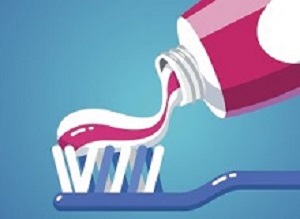 A University of Queensland study found 'strong evidence' that the triclosan found in personal care product may be accelerating the spread of antibiotic resistance.
A University of Queensland study found 'strong evidence' that the triclosan found in personal care product may be accelerating the spread of antibiotic resistance.
A study led by Dr Jianhua Guo from UQ's Advanced Water Management Centre focused on triclosan, a compound used in more than 2000 personal care products.
Guo said while it was well-known the overuse and misuse of antibiotics could create “superbugs”, researchers were unaware that other chemicals could also induce antibiotic resistance until now.
"Wastewater from residential areas has similar or even higher levels of antibiotic resistant bacteria and antibiotic resistance genes compared to hospitals, where you would expect greater antibiotic concentrations," he said.
"We then wondered whether non-antibiotic antimicrobial (NAAM) chemicals such as triclosan can directly induce antibiotic resistance," Guo said.
"These chemicals are used in much larger quantities at an everyday level, so you end up with high residual levels in the wider environment, which can induce multi-drug resistance.
"This discovery provides strong evidence that the triclosan found in personal care products that we use daily is accelerating the spread of antibiotic resistance."
Advanced Water Management Centre director, Professor Zhiguo Yuan, said the discovery should be a wake-up call to re-evaluate the potential impact of such chemicals. "While the US Food and Drug Administration (FDA) has banned the use of triclosan in antibacterial soap, the previous lack of unequivocal evidence prevented such a policy being adopted in other countries," Yuan said.
Antimicrobial resistance has become a major threat to public health globally with approximately 700,000 people a year dying from antimicrobial-resistant infections.
The Review on Antimicrobial Resistance report predicted this will reach 10m deaths a year by 2050 if no action is taken now.
Abstract
Antibiotic resistance poses a major threat to public health. Overuse and misuse of antibiotics are generally recognized as the key factors contributing to antibiotic resistance. However, whether non-antibiotic, anti-microbial (NAAM) chemicals can directly induce antibiotic resistance is unclear. We aim to investigate whether the exposure to a NAAM chemical triclosan (TCS) has an impact on inducing antibiotic resistance on Escherichia coli. Here, we report that at a concentration of 0.2 mg/L TCS induces multi-drug resistance in wild-type Escherichia coli after 30-day TCS exposure. The oxidative stress induced by TCS caused genetic mutations in genes such as fabI, frdD, marR, acrR and soxR, and subsequent up-regulation of the transcription of genes encoding beta-lactamases and multi-drug efflux pumps, together with down-regulation of genes related to membrane permeability. The findings advance our understanding of the potential role of NAAM chemicals in the dissemination of antibiotic resistance in microbes and highlight the need for controlling biocide applications.
Authors
Ji Lu, Min Jin, Son Hoang Nguyen, Likai Mao, Jie Li, Lachlan JM Coin, Zhiguo Yuan, Jianhua Guo
[link url="https://www.uq.edu.au/news/article/2018/06/toothpaste-and-hand-wash-may-contribute-antibiotic-resistance"]University of Queensland material[/link]
[link url="https://www.sciencedirect.com/science/article/pii/S0160412018303672"]Environment International abstract[/link]
